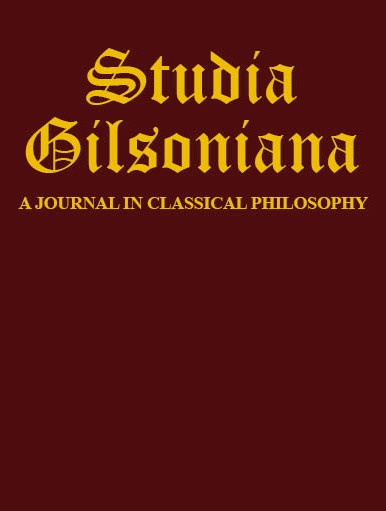Klugheit. Grundbegriff des Praktischen bei Aristoteles
Prudence. The Basic Concept of the Practical in Aristotle
Author(s): Berthold WaldSubject(s): Philosophy, Philosophical Traditions, Special Branches of Philosophy
Published by: International Étienne Gilson Society
Keywords: prudence; Aristotle; truth; wisdom; knowledge; will; virtue; morality; action; ethics; judgment; skill;
Summary/Abstract: The article begins by recalling the most important understandings associated with the term prudence in the history of philosophy. Then it introduces the Aristotelian concept of prudence linked to practical truth—prudence seen in contrast to wisdom and knowledge of manufacturing. The article discusses various forms of rational knowledge associated with the right will, and proves the need of linking prudence to all the other ethical virtues based on moral principles. It emphasizes the problem of how to relate general principles to specific actions which involve particular goods. For resolving this problem, the article refers to Aristotle who sees the solution in political ethics which has a significant impact on individual behavior; consequently, good law and proper education are considered to be necessary conditions which allow to form the moral judgment skills for providing a morally good life. The article concludes with the claim that the proper field to capture the specificity of prudence includes the theory of human action and that of human morality.
Journal: Studia Gilsoniana
- Issue Year: 5/2016
- Issue No: 4
- Page Range: 689-707
- Page Count: 29
- Language: German

